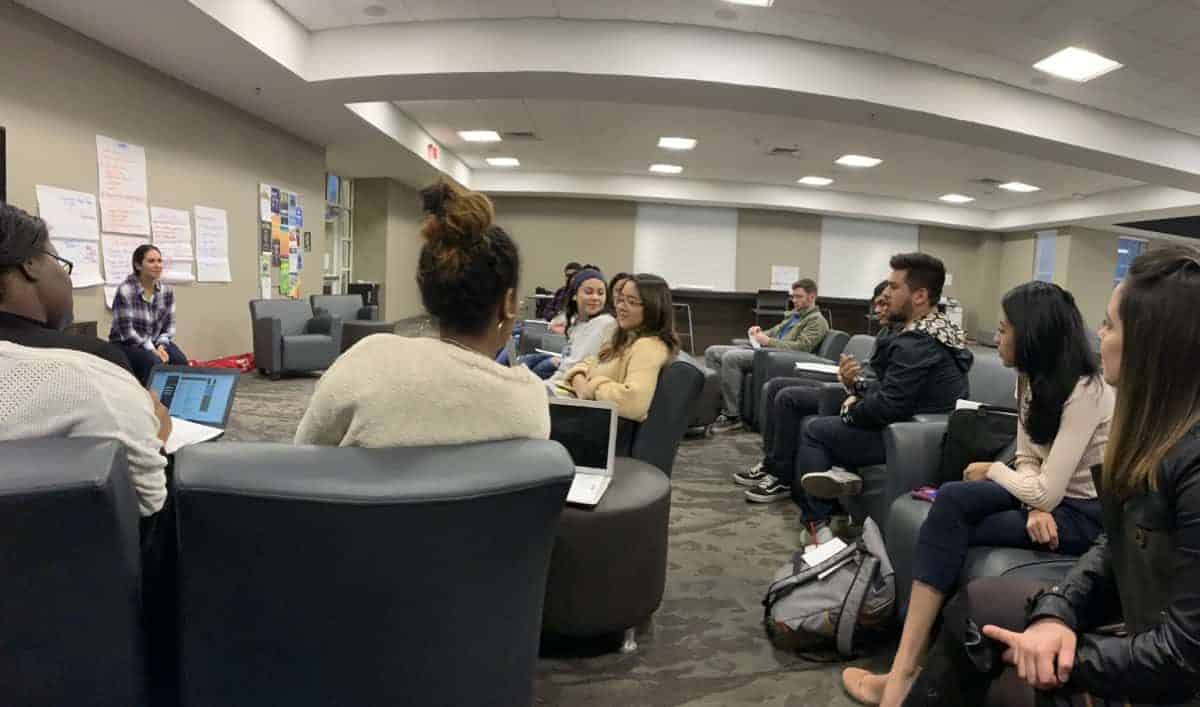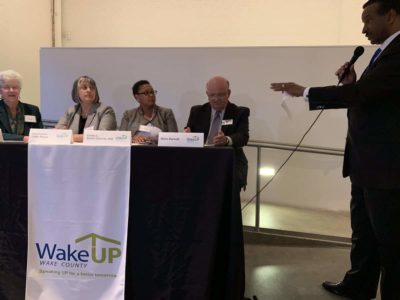
Michael Guerrero is fighting for his best friend, whom he can’t believe is not interested in college anymore. Guerrero’s best friend has a top 10 class rank out of more than 300 seniors at Garinger High School in Mecklenburg County.
“He’s the smartest person I know,” Guerrero said. “He’s a much smarter kid than I am, but he’s not interested in college anymore. And it pains me to see that.”
That’s because Guerrero’s best friend is not a documented immigrant. He is the child of parents who immigrated to America without documentation. He grew up in the Charlotte area, is a resident of North Carolina, and has attended North Carolina schools. But if he wants to attend college in North Carolina, he would need to pay out-of-state tuition, because North Carolina does not recognize undocumented students as in-state residents for college tuition purposes.
Guerrero is part of a group that is trying to change that. Led by community organizer Kayla Romero Morais of Students for Education Reform (SFER), the group of high school and college students — numbering more than 20 — meet regularly and strategize how to change the law. The group’s name, similar to other campaigns around the state and country, is “One State. One Rate.”
“Thousands of undocumented students in North Carolina are prevented from continuing their education after high school each year,” SFER’s tuition equity page states. “They are forced to pay out of state tuition, which is 4x higher than their in-state peers to attend UNC System schools. These hardworking students who have grown up in North Carolina want to pursue their dreams and contribute to the NC economy, but they can’t access an affordable college education. Tuition equity would give in state tuition to undocumented North Carolinians.”
Currently, some 33,000 school-aged undocumented immigrant children live in North Carolina. There are 170,000 U.S. citizen children living in the state under the care of at least one undocumented parent. For these children, obtaining in-state tuition under current state residency laws can sometimes be confusing — particularly for those applying to community colleges.
On a brisk Wednesday evening last month, the One State. One Rate. students gathered to talk about a number of strategies — and to celebrate a small victory in the filing of House Bill 319. HB 319, entitled In-State Tuition Equity, affords in-state tuition to anyone who can establish (1) they received a high school diploma or a high school equivalency diploma within North Carolina; (2) they attended North Carolina schools for at least two consecutive years immediately prior to high school graduation; (3) if they do not have lawful immigration status, they will file an affidavit saying they have either filed or will file an application to legalize their immigration status; and (4) they satisfy the admission standards for the postsecondary school.
HB 319 is similar to a bill passed by the 2013-14 General Assembly, HB 904. However, HB 904 died in committee with only Democratic support. This time, the One State. One Rate. team is pushing for a different outcome by advocating for bipartisan sponsorship support for HB 319, and they are scheduling meetings with officials as high up as the governor.
While the students are respectful and professional, they are also educated and prepared. In February, two of the students met with Rep. Brandon Lofton, D-Mecklenburg. After explaining their position and discussing the issue, they had an important question:
“Do you stand with us?” they asked.
Lofton told the group that he believes in a North Carolina where every child has the potential to better themselves through education. That response was not sufficient.
“Does every child in your eyes include undocumented children?” they pressed.
Morais called that meeting a success not only based upon Lofton’s response, but on the learning experience that students had while sitting with a legislator. One of the key takeaways from that experience, the group said, was the importance of vulnerability.
“I had to be open about my story so that people can understand where you’re coming from,” one student said.
Morais said the group is pushing forward. They are in the process of initiating talks with the community college system to discuss a waiver for DACA students. They also have the names of at least two Republican legislators who might be open to tuition equity, and they are planning meetings to build bipartisan support for this effort.
Perhaps most impactful, they are meeting with students at their school to drum up more support for their grassroots coalition — particularly through Latin American Student Association (LASA) organizations at schools, where they talk about “One State. One Rate.” and organize “house” meetings to talk about the campaign and invite Latino/Latina students to get involved.
Indeed, Esme Guido was a new face arriving to the campaign via one of these house meetings, having first heard of the opportunity through the LASA at Olympic High School.
“We’re all here because of somebody,” Morais said, “and that’s how we’re going to keep building.”
Editor’s note: Kayla Romero Morais is a member of the board of directors for EducationNC.


